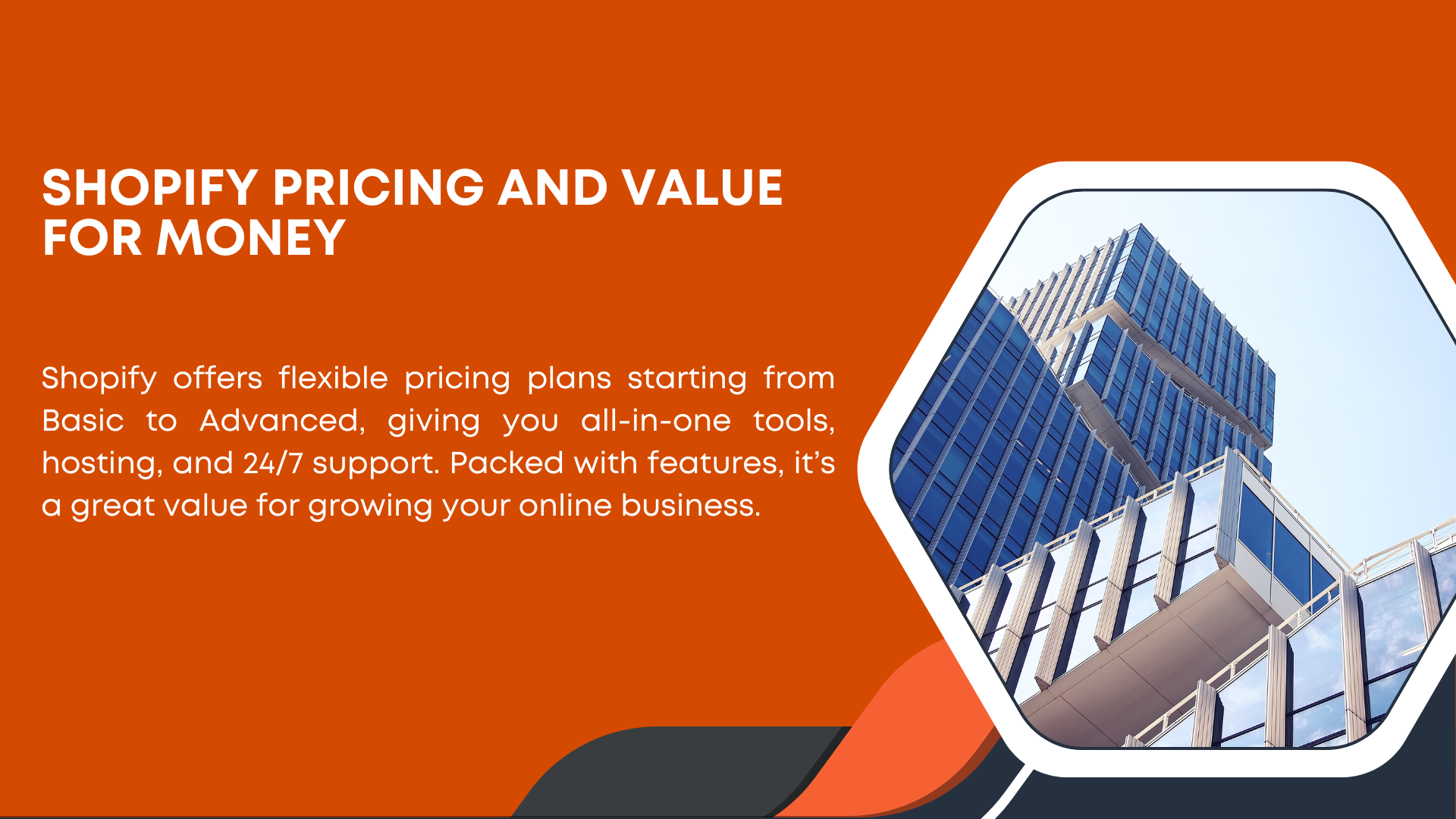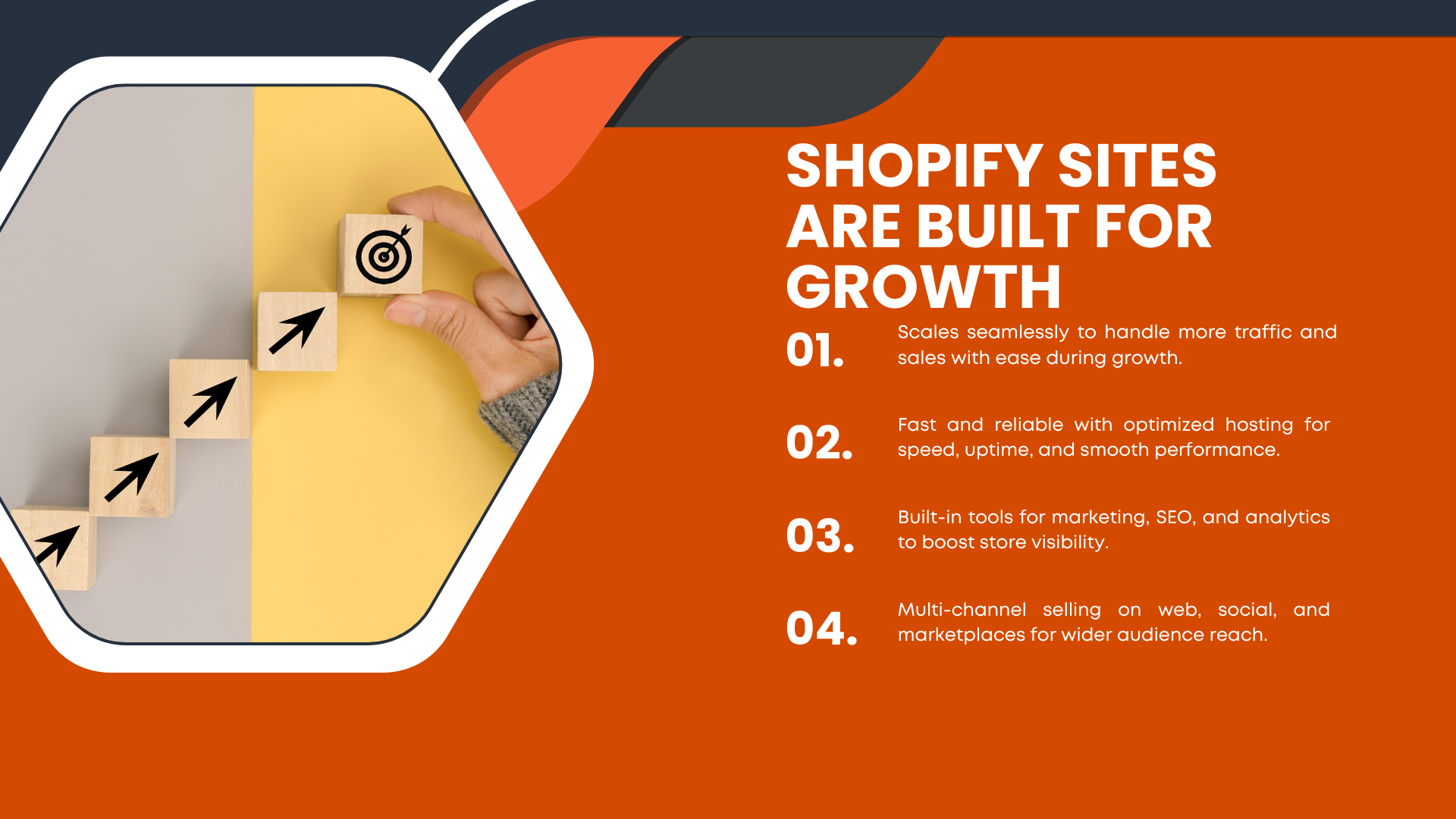Introduction
In the fast-paced world of e-commerce, entrepreneurs and small business owners are always searching for the most effective tools to launch and scale their digital ventures. Many of them begin by asking a simple question: what is Shopify? The answer is that it’s much more than just software—it’s a platform designed to give anyone the ability to build, manage, and grow an online store with ease.
At its core, what is Shopify can be explained as a powerful, cloud-based ecommerce solution. It allows individuals and businesses to set up a store without needing to know coding or web development. From the very first steps of designing your store to managing payments and shipping, Shopify makes the entire process straightforward and accessible.
For startups exploring what is Shopify, the appeal comes from its simplicity. The platform provides all the essentials—product listings, secure payment gateways, marketing tools, and shipping solutions—wrapped into one seamless system. This means you can focus on selling rather than struggling with the technical side of running an online business.
For established brands, understanding what is Shopify is equally important. Its versatility allows businesses of all sizes to expand into new markets, handle larger product catalogs, and integrate with other platforms without hassle. Shopify adapts as your business grows, ensuring you never outgrow the tools you rely on.
What makes Shopify stand out is that it’s not just a website builder but a complete ecommerce ecosystem. Trusted by millions of merchants worldwide, it combines user-friendly design with professional-grade features. Whether you’re learning how to start an online store or shifting an offline business to the digital marketplace, Shopify provides the flexibility and reliability needed to succeed in today’s competitive landscape.
How Does Shopify Work?
Understanding how Shopify works can help you decide whether it fits your business model. Shopify operates as a SaaS (Software-as-a-Service) platform. This means that instead of downloading and installing software, you access Shopify through your web browser. Everything is hosted and managed by Shopify on secure servers.
Once you sign up, you’re taken to the Shopify admin login area, which is the control center of your store. From there, you can add products, design your storefront using drag-and-drop builders, install apps to enhance features, track sales performance, and manage orders—all from one dashboard.
The platform uses a subscription model. Based on your budget and feature needs, you can choose a plan that fits your business. Whether you’re a solo seller or a growing enterprise, there’s a tier to accommodate every scale. This makes Shopify an ideal option for those looking to start an online retail journey with minimal friction.
Key Features That Make Shopify Stand Out
- Product Management: Easily add, edit, and organize products with tags, categories, and inventory control.
- Themes and Design: Choose from professionally designed Shopify templates that are mobile-responsive and customizable.
- Secure Payments: Shopify supports multiple payment gateways, including PayPal, Stripe, and Shopify Payments.
- Shipping Integration: Manage all your shipping needs, including real-time rates, label printing, and fulfillment tracking.
- Mobile App: With the Shopify app, you can run your store on the go, manage orders, and view real-time sales data.

How to Use Shopify to Launch Your Online Store
Learning how to use Shopify effectively starts with understanding the setup process. You begin by creating an account on Shopify’s website. Once you’re inside the admin dashboard, the steps are simple: choose a theme, add your products, set up payment methods, and configure your domain. You can then preview your store before making it live.
One of the platform’s strongest advantages is the ability to build Shopify store websites in hours rather than weeks. With built-in tools for SEO, marketing, and analytics, Shopify eliminates the need for multiple software integrations. Additionally, helpful resources like the Shopify Help Center offer detailed guides and tutorials for every step, so even beginners can confidently launch their first store.
If you’re wondering how to create a Shopify store, here’s a brief overview:
- Sign up for an account on Shopify.com
- Choose a plan based on your business size
- Select and customize a theme
- Add your products and descriptions
- Configure payment and shipping settings
- Connect a custom domain
- Launch your store and go live!
Why Entrepreneurs Prefer Shopify for Online Selling
When considering a platform to launch your online store, it’s essential to weigh both the advantages and the potential drawbacks. Many people start their research by asking what is Shopify and whether it’s the right fit for their needs. Based on recent Shopify reviews and user feedback, Shopify consistently receives praise for its ease of use, extensive functionality, and dependable support system.
One of the standout pros for anyone wondering what is Shopify is how beginner-friendly the platform is. Whether you’re an individual just starting your first online store or a seasoned entrepreneur, Shopify’s intuitive interface makes store management straightforward and stress-free. The learning curve is minimal, and you don’t need any coding experience to set up a fully functional e-commerce website.
Another major advantage for those exploring what is Shopify is the availability of professionally designed, mobile-responsive Shopify templates. These themes not only look appealing but are also optimized for user experience and conversion. With a wide range of styles and layouts, sellers can find a design that aligns with their brand identity without hiring a designer.
Shopify’s app ecosystem is another strong point in understanding what is Shopify. The Shopify app store offers thousands of plugins and extensions that add extra features to your store, such as email marketing integrations, upselling tools, social media plugins, accounting apps, and more. This allows store owners to customize and scale their business according to their specific needs.
Users also commend Shopify for its reliability, another reason why people searching what is Shopify often end up choosing it. The platform boasts excellent uptime, meaning your store will almost always be accessible to your customers. In addition, robust security features are built into the platform, including SSL certification and PCI compliance, giving both sellers and buyers peace of mind when conducting transactions.
Furthermore, Shopify is known for offering strong customer support. The Shopify support team is available 24/7 via live chat, email, or phone, ensuring that help is always at hand whenever a technical issue arises or guidance is needed. For many, learning what is Shopify also means discovering just how committed the platform is to helping its users succeed.
However, like any platform, Shopify does come with its challenges. One of the most commonly mentioned cons in user reviews is the monthly subscription cost. For smaller sellers or startups with tight budgets, the recurring fees—especially when combined with paid apps and premium themes—can become expensive over time. While Shopify provides immense value, these costs can add up quickly if not managed carefully.
Another potential drawback is that some of the more advanced features, such as robust reporting tools or international shipping calculators, may require the use of third-party apps. While the app ecosystem is vast and powerful, reliance on external tools for essential functions might not be ideal for everyone.
Lastly, users who wish to deeply customize their site may find limitations unless they are familiar with Liquid, Shopify’s proprietary templating language. While the platform does offer flexibility, making significant design or backend changes often requires developer knowledge, which might be a barrier for some store owners.
Despite these few drawbacks, most users agree that understanding what is Shopify ultimately leads to recognizing its strengths—simplicity, reliability, support, and scalable tools—which far outweigh its limitations. It remains one of the most trusted and recommended platforms for building and managing an online store.
Shopify Pricing and Value for Money
A common question among new sellers is: Is Shopify worth the price? Let’s take a closer look at Shopify pricing.
Shopify offers multiple pricing tiers:
- Basic Shopify: Ideal for new sellers with essential ecommerce tools.
- Shopify Plan: Suitable for growing businesses needing more features.
- Advanced Shopify: Designed for scaling businesses with higher sales volume and advanced reporting.
- Shopify Plus: Enterprise-level solution for high-volume retailers.
Each plan includes hosting, SSL security, 24/7 Shopify support, and access to the Shopify app marketplace. You can also test the platform with a free trial before committing, making it risk-free to explore.
Given the features included, Shopify’s pricing is competitive, especially when compared to hiring developers or buying third-party ecommerce tools separately. The platform is a great choice for anyone looking to make money fast with a well-structured online store.

Pros and Cons Based on Shopify Reviews
When considering a platform to launch your online store, it’s essential to weigh both the advantages and the potential drawbacks. Many new business owners begin by asking what is Shopify, and based on recent reviews and user feedback, the platform consistently receives praise for its ease of use, extensive functionality, and dependable support system.
One of the standout pros is how beginner-friendly it is, which makes the answer to what is Shopify clear—it’s a solution built for all experience levels.
Whether you’re an individual just starting your first online store or a seasoned entrepreneur, Shopify’s intuitive interface makes store management straightforward and stress-free. The learning curve is minimal, and you don’t need coding experience to set up a fully functional e-commerce website. For anyone still asking what is Shopify, this simplicity is one of its greatest advantages.
Another major benefit is the availability of professionally designed, mobile-responsive Shopify templates. These themes not only look appealing but are optimized for user experience and conversion. With a wide range of layouts and styles, sellers can find a design that aligns with their brand identity without hiring a professional.
This is another way to see what is Shopify in action—a platform that makes design and branding accessible.
Shopify’s app ecosystem is another area where the platform truly excels. The Shopify app store offers thousands of plugins and extensions that add powerful features to your store, such as email marketing integrations, upselling tools, social media plugins, accounting apps, and more. When people ask what is Shopify compared to competitors, this vast app marketplace is often the deciding factor, since it allows businesses to customize and scale quickly.
Users also commend Shopify for its reliability. The platform boasts excellent uptime, ensuring your store is always available to customers. In addition, strong built-in security measures, including SSL certification and PCI compliance, keep transactions safe. For many, the reliability answers the question of what is Shopify—it’s a trustworthy platform that businesses can depend on for sales.
Furthermore, Shopify is known for offering strong customer support. The Shopify support team is available 24/7 via live chat, email, or phone, giving business owners peace of mind. When you consider what is Shopify from the perspective of ongoing support, it becomes clear why so many merchants choose to stay with it long-term.
Of course, no platform is perfect. One of the most mentioned downsides is the monthly subscription cost. For smaller sellers or startups, recurring fees—especially when combined with paid apps and premium themes—can add up quickly. While this may concern those still asking what is Shopify, the platform provides enough value to justify the investment for most businesses.
Another drawback is that advanced features such as international shipping calculators or detailed reporting often require third-party apps. While the app store is robust, reliance on external tools for certain essential tasks may not suit everyone. Additionally, store owners who want deep customization may need to learn Liquid, Shopify’s proprietary coding language, which can be a barrier.
Despite these drawbacks, the overall feedback remains positive. For anyone wondering what is Shopify and whether it’s worth it, the strengths—ease of use, scalability, security, and support—far outweigh the limitations. That’s why it remains one of the most trusted and recommended platforms for building and managing an online store today.
How Shopify SEO and Templates Drive Traffic
When you’re building a store, visibility is key. That’s where Shopify SEO comes in. For anyone asking what is Shopify, one of its major strengths is its built-in optimization features. Shopify gives you the ability to customize metadata, URLs, alt tags, and headers, making it easier to rank on search engines. The built-in blog feature also lets you create content, improving your SEO organically.
Additionally, for those still wondering what is Shopify, it’s worth noting that Shopify templates are designed with speed and responsiveness in mind, which are essential factors for good rankings. Many templates are optimized for SEO right out of the box, so your store loads fast and performs well across devices.
If you’re learning what is Shopify in detail, you’ll find that working with a Shopify agency can take your SEO strategy to the next level. They can enhance your store’s visibility by combining keyword research, on-page optimization, and backlinking—helping you make the most out of everything what is Shopify has to offer.
Shopify Admin Login and Day-to-Day Management
Running your store through the Shopify admin login area is incredibly intuitive. You’ll find a neatly organized dashboard where you can:
- View and manage customer orders
- Track inventory and shipping status
- Access real-time sales data
- Monitor customer behavior and abandoned carts
- Install new features through the Shopify app store
Shopify Sites Are Built for Growth
Once your store is up and running, Shopify provides not only the tools to manage your business daily but also the infrastructure needed for long-term success. For those still asking what is Shopify, one of its greatest strengths is the ability to scale seamlessly with your business.
Whether you begin with a small boutique or launch a large ecommerce brand, Shopify is designed to grow alongside you. The question of what is Shopify becomes clearer when you see how it adapts to both startups and established enterprises.
The platform is engineered to handle growing levels of traffic and transactions without sacrificing speed or stability. For entrepreneurs who wonder what is Shopify during peak sales events, the answer lies in its managed hosting that adjusts automatically, ensuring your store stays fast even on Black Friday or during seasonal promotions.
As your business grows, upgrading to higher-tier plans is simple. You don’t need to migrate or risk losing data, and this flexibility highlights once again what is Shopify—a system built for smooth scaling without disrupting customer experiences.
Beyond infrastructure, Shopify also provides growth-oriented tools. Analytics, multi-channel selling, abandoned cart recovery, and automated marketing workflows give store owners the ability to make informed decisions and increase conversions. For anyone still thinking about what is Shopify, these features prove it’s more than just a selling platform.
Many entrepreneurs eventually work with a Shopify agency to unlock even more growth. These agencies help with design, SEO, branding, and performance optimization. When store owners combine expert strategy with the platform’s technology, they better understand what is Shopify in terms of long-term ecommerce success.
Whether you want to expand globally, improve customer journeys, or refine your sales funnel, learning what is Shopify shows why it’s trusted worldwide. With the right balance of technology and support, Shopify evolves into a powerful engine for growth.

Conclusion: Is Shopify Right for You?
Efficient and reliable platforms available today are rare, but when you ask what is Shopify, you’ll discover it’s more than just a simple website builder. It is an all-in-one commerce solution that empowers entrepreneurs to create, manage, and scale their online businesses with ease. From handling payments and shipping to marketing and SEO, Shopify combines every essential feature into one powerful platform.
For anyone wondering what is Shopify and how it works in real-world business, the answer lies in its flexibility and simplicity. It’s designed to serve both beginners who are taking their first step into e-commerce and professionals who want a reliable platform to grow their brand.
With a comprehensive suite of tools, excellent customer support, and endless customization options, Shopify ensures that business owners don’t just build a store—they build a thriving online presence.
When you explore what is Shopify, you quickly realize it’s not just about setting up a store. It’s about creating an ecosystem where your business can succeed. Whether you need to manage products, streamline shipping, or optimize for search engines, Shopify provides the resources to do it all.
This makes it the perfect platform for anyone searching for how to start an online store, how to build a Shopify website, or even how to sell products effectively in today’s competitive digital market.
Ultimately, asking what is Shopify opens the door to understanding why it’s trusted by millions of businesses worldwide. It is fast, reliable, and built to help entrepreneurs focus on what really matters: selling and scaling.
So, if you’ve been trying to figure out what is Shopify and whether it’s right for you, the conclusion is clear—it’s the best choice for launching, managing, and growing your online business in a way that is both efficient and future-proof.
By truly understanding what is Shopify, you unlock the full potential of e-commerce and gain access to a platform that supports your business journey every step of the way.



hlo